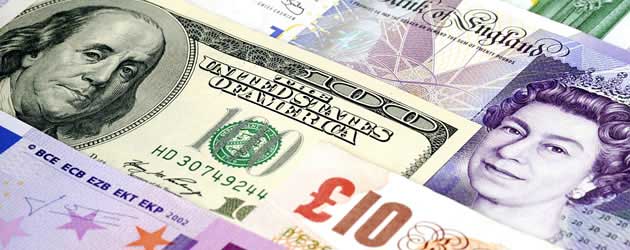
This week is hotting up to be a massive week of trading in forex markets as five of the world’s most prominent Central Banks announce their benchmark interest rates for September. Markets are not expecting a change of interest rate from the RBA, the BoC, the BoJ, the BoE or the ECB, however, it is possible that Central Bank commentary will give yield to some significant market volatility.
The Pound to Australian Dollar exchange rate (GBP/AUD) struck a fresh 3-year high of 1.7483 last week as risk sentiment was dampened by the Syrian conflict. On Tuesday morning the Reserve Bank of Australia is expected to maintain its current benchmark interest rate of 2.50%. Although the Australian economy is currently experiencing a period of leveling out, following the decade-long mining boom, it is possible that the ‘Aussie’ could garner support from the latest Central Bank statement if the RBA strikes a neutral tone. With Chinese data coming in slightly better-than-expected in August there is likely to be less urgency for another rate cut.
The Canadian Dollar managed to avoid sliding to another 3-year low against Sterling last Friday despite June’s GDP report printing at -0.5%, which is the worst score since 2009. However, the quarterly growth report printed one percentage point above the median forecast at 1.7%, which worked to prop-up the ‘Loonie’. With crude oil prices soaring to a fresh 6-month high last week, due to concerns that the Syrian military conflict could lead to a shortage of supply from the Middle East, the Canadian Dollar is also benefiting from its position as a commodity-sensitive currency. The Bank of Canada has previously intimated that it intends to raise interest rates from the current level of 1.00% in the not-too-distant future, but with the Federal Reserve fairly likely to reduce the size its asset purchasing scheme imminently a BoC rate hike is unlikely to materialise this Wednesday.
As a staple safe haven currency the Japanese Yen was able to rally by just under 2.0 cents against the Pound last week as traders piled into the Eastern currency to protect themselves against Syrian-induced volatility. The Bank of Japan is widely predicted to leave rates unchanged at the ultra-low level of 0.10% on Thursday and it is also thought that the Japanese Central Bank will refrain from making any additions to its ambitious $70 billion a month asset purchasing programme. This is liable to bolster demand for the Yen, which, ironically, is likely to tempt the BoJ into upping its QE programme at a later date in order to maintain a competitive edge for Japanese exporters.
The Bank of England is due to announce its latest interest rate and asset purchasing target on Thursday at midday. Despite the recent uptick in British data the UK Central Bank looks certain to stick with the current record low 0.50% benchmark rate in light of Governor Carney’s forward guidance that interest rate will remain unchanged until the Unemployment Rate falls to 7.0%. However, the robust nature of the latest UK data readings should ensure that no further funds are added to the BoE’s quantitative easing target. The Bank of England usually refrains from releasing a statement alongside its monetary policy decisions, and for this reason the event is likely to pass by relatively quietly in terms of market movement.
The European Central Bank is also set to make an announcement on Thursday with regards to monetary policy. Despite the most sincere protestations of Bundesbank President and ECB Board Member Jens Weidmann, the European Central Bank looks almost certain to hold the current record-low interest rate of 0.50%. ECB President Mario Draghi has repeatedly pledged to maintain ultra low cash rates in the currency bloc for a “prolonged period of time”. The ECB Chief has also voiced concerns regarding weak credit growth in the Eurozone – capital levels have fallen to lows not seen since before the introduction of the LTRO liquidity-boosting schemes in February 2011 and December 2011 – indicating that he may look to bolster the cash flow with another set of non-standard measures. Any move of this kind would likely lead to strong Sterling rallies against the Euro.

Comments are closed.